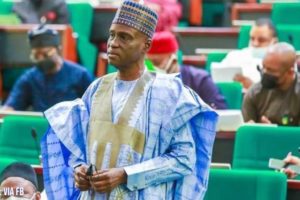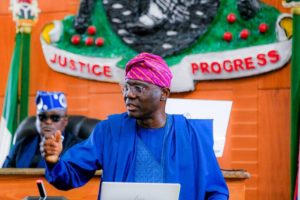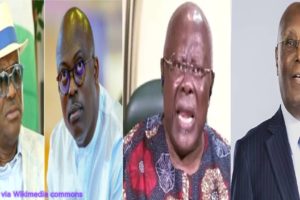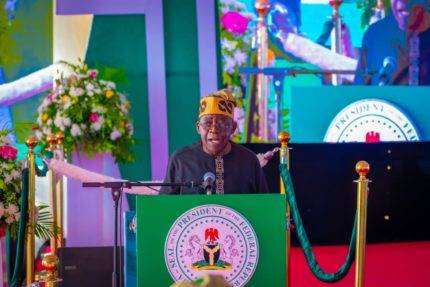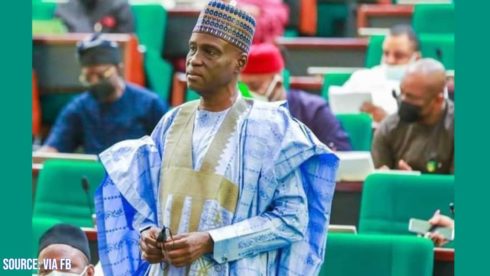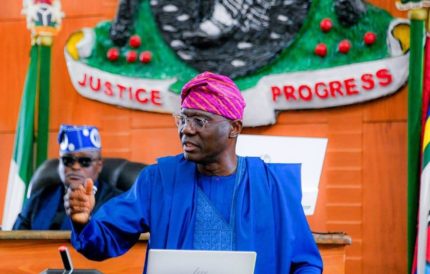The Nigerian government has expressed strong disapproval of the New York Times’ recent report titled “Nigeria Confronts Its Worst Economic Crisis in a Generation.” Authored by Ruth Maclean and Ismail Auwal, the article, published on June 11, 2024, was described by the Nigerian authorities as reductionist and derogatory. They argue that it represents a continuation of a longstanding pattern in foreign media of presenting African nations in a negative light.
According to the Nigerian government, the report unfairly lays the blame for Nigeria’s economic troubles on the policies of President Bola Tinubu, who assumed office in May 2023. Officials assert that the dire economic conditions were inherited and not created by the current administration. They emphasize that the report neglects to acknowledge the positive measures being undertaken to stabilize and improve the economy. This one-sided portrayal, they argue, misleads readers about the true state of affairs and the efforts being made to address the crisis.
Economic Challenges and Policy Responses by Nigerian government
President Tinubu’s administration has been grappling with a severely distressed economy, described by some economists as “bleeding” and in urgent need of reform. The removal of the longstanding fuel subsidy and the unification of multiple exchange rates were among the initial drastic measures taken to prevent a further economic decline reminiscent of Zimbabwe and Venezuela.
The fuel subsidy, which had cost Nigeria $84.39 billion between 2005 and 2022, was deemed unsustainable. With the national budget already straining under massive debt service obligations—accounting for 97% of revenue—there was little room for other expenditures. The subsidy also contributed to a significant accumulation of debt by the Nigerian National Petroleum Corporation (NNPC). Similarly, the exchange rate policy, which involved substantial Nigerian government spending to maintain a low rate, fostered arbitrage and drained the Central Bank’s resources. The new administration’s decision to float the naira, despite initial volatility, has started to bring some stability to the currency market.
Tackling Food Inflation: Tinubu Administration’s Strategic Plans
The Nigerian government, under the leadership of President Bola Tinubu, is taking decisive steps to address the rampant issue of food inflation. With the execution of multiple strategic plans, there is a strong belief that this economic challenge will soon be under control. The administration has rolled out a series of policies aimed at boosting agricultural productivity, improving supply chain logistics, and reducing the costs associated with food production and distribution.
One of the key components of these plans is the investment in modern agricultural technologies and practices. By supporting farmers with advanced tools and resources, the Nigerian government aims to increase crop yields and reduce the dependency on food imports. Additionally, infrastructural improvements, such as better roads and storage facilities, are being prioritized to ensure that food products reach markets more efficiently and with less spoilage. These efforts are expected to lower food prices and make essential commodities more affordable for the average Nigerian family.
Global Perspective: Inflation Challenges Beyond Nigeria
Nigeria is not alone in its battle against rising living costs. Countries around the world, including major economies like the United States and those in Europe, are grappling with similar crises. In the US, Treasury Secretary Janet Yellen has highlighted the struggles that many American families face as they cope with increasing prices for basic necessities. The situation in Europe is equally dire, with several countries implementing emergency measures to ease the financial burden on their citizens.
The Tinubu administration’s proactive approach can be seen as part of a global effort to manage inflation and its impacts. By learning from the strategies being employed in other nations and tailoring them to Nigeria’s unique economic context, the Nigerian government hopes to stabilize the economy and improve the standard of living for its people. The shared global experience underscores the importance of international cooperation and knowledge exchange in overcoming such widespread economic challenges.
Historical Resilience: Overcoming Economic Hardships
Nigeria’s current economic difficulties are not unprecedented. The country has faced and surmounted significant economic challenges in the past, an experience that is often reflected in folk songs and cultural narratives. This historical resilience is a source of inspiration for the current administration and the populace at large. The Tinubu administration draws on this legacy of perseverance and adaptability as it implements measures to curb inflation and revitalize the economy.
The Nigerian government’s confidence in overcoming these challenges is rooted in the belief that, just as previous administrations managed to steer the country through tough economic times, the current leadership will also succeed. By fostering a spirit of collective effort and national unity, the administration aims to mobilize all sectors of society towards achieving economic stability and growth. This approach not only addresses immediate economic concerns but also builds a foundation for long-term prosperity.
Positive Economic Indicators and Future Prospects: Nigerian Government
Despite the initial turbulence following the policy changes, there are emerging signs of economic stabilization and recovery. The naira, which had fallen sharply, has begun to regain some strength, and the exchange rate is now below N1,500 to the US dollar. Projections suggest that the currency could appreciate further by the end of the year. Additionally, Nigeria recorded a trade surplus of N6.52 trillion in the first quarter of 2024, marking a significant turnaround from the deficit in the previous quarter.
Foreign investment has also shown signs of recovery, with portfolio investors returning and significant acquisitions, such as Tolaram’s purchase of Diageo’s stake in Guinness Nigeria, signaling renewed confidence in the market. International financial institutions, including the World Bank and the African Development Bank, have extended substantial loans, further underscoring Nigeria’s improving economic prospects. The Nigerian government’s efforts to control inflation, particularly food inflation, include increased agricultural production and direct interventions to make food more affordable. State governments are actively participating in these initiatives, setting up retail shops for cheaper food and investing in large-scale agricultural projects. These measures, along with ongoing support for farmers, are central to the administration’s strategy to foster long-term economic stability and growth
Table of Contents
Discover more from OGM News NG
Subscribe to get the latest posts sent to your email.

